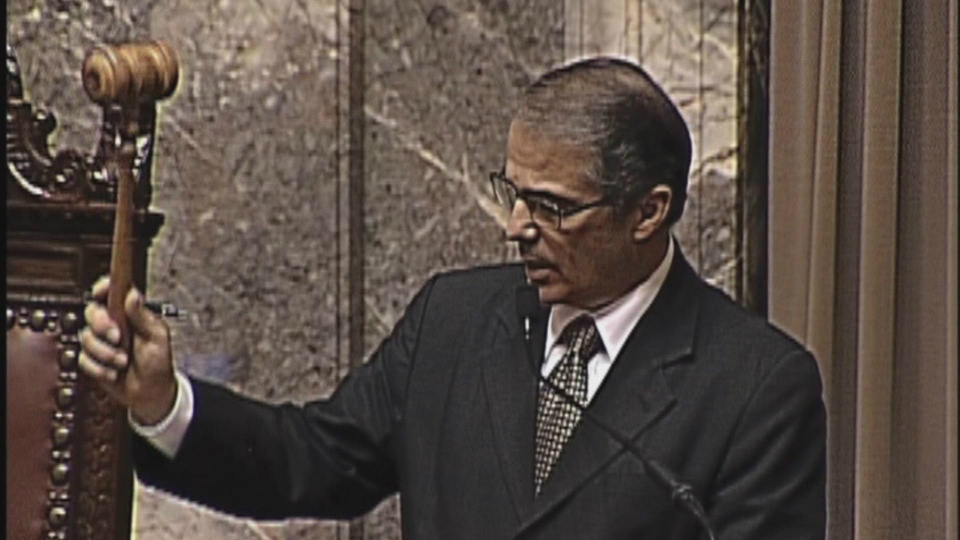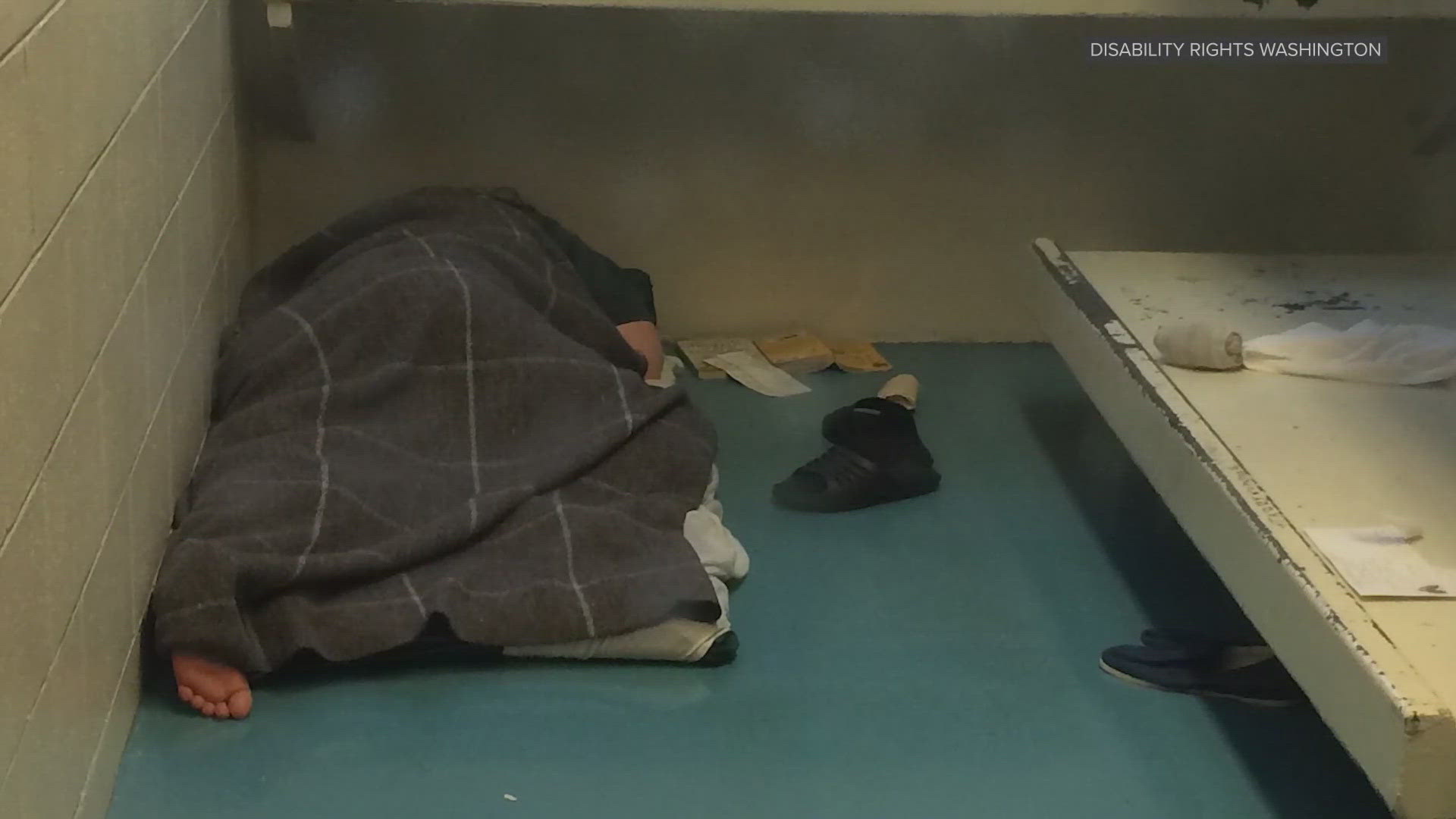Brad Owen, Washington's second-highest-ranking public official, is proud of the changes he's brought to Olympia.
First elected lt. governor in 1996, Owen boasts that he expanded the duties and responsibilities of an office that, outside of presiding over the state Senate, had been largely ceremonial in the past. Owen worked to give his office a greater voice in economic development and responsibility to represent the state's international trade agenda. He travels internationally several times a year to promote Washington businesses, especially in Asia.
"Nobody has done as much as I do in this job ever in the past – in the history of the state of Washington," said Owen.
Recognizing the importance of his many duties, Owen said he's paid around $116,000 a year. According to the Washington Citizens' Commission on Salaries for Elected Officials website, that amount includes a base salary of $97,000, plus a per diem he receives during legislative sessions and the extra compensation he makes when he acts as governor -- something that happens any time Jay Inslee leaves the state.
But a KING 5 review of Owen's office schedule shows an official who is absent from his office in the state capitol during much of the year. His official, staff-prepared calendars for the years 2006 to the present show many days marked as "personal."
Each year there are dozens of work days where no official state business is listed. Instead, Owen's staff notes private activities, including:
• "Going fishing (in) Ilwaco"
• "Camping trip"
• "Home project"
• "blocked per Linda (Owen's wife)"
• "family in town"
• "Gone hunting in Oregon"
• "Western States Bowhunters Rendezvous"
• "hunting (in) Neah Bay"
• "do not schedule – LG will not be available"
• "blocked"
• "Deer Bow Hunting Season"
• "Elk Bow Hunting Season"
• "Spring Turkey Season"
• "Personal…trip"
• "SFY" event (Strategies for Youth, Owen's former nonprofit)
Owen says his schedules, which are public records, do not accurately reflect his work activities. He said he mostly works from home outside of the session, which is not listed on the calendars.
"There is rarely a day where I'm not taking phone calls, rarely a day when I'm not going through the emails and seeing what I have to do. My schedule is not that I have to be in the office in order to do my work," said Owen. "The things I do are not reflected on the calendar."
Former employees who spoke with KING on the condition of anonymity say Owen's work ethic was a concern. While dutifully presiding over the Senate during the 60- or 105-day legislative sessions, Owen could be an infrequent presence in his Olympia office during the rest of the year.
"When we weren't in session he was off doing his own thing," said one former employee. "His thing was going to schools for his nonprofit. He wasn't doing much state business."
"All of the staff was frustrated that he wasn't there. They were trying to figure out his schedule and what he wanted them to do but he wasn't there. (The office director) used to complain that that was the hardest part of his job," said another former employee.
Owen dismissed those criticisms.
"The staff would not know what I'm doing when I'm at home. Would they? Ask them what time they get emails from me – three o'clock in the morning, two o'clock in the morning when I'm not sleeping. What about that? Does that count? That's not on the calendar," said Owen.
Government ethics experts consulted for this report say not showing a presence in the office is problematic given the fact that over the years Owen's office has grown in responsibility, staff size and budget.
"It's really interesting that to the extent he's worked to make the job more responsible and much more powerful, going along with that is this obligation to be present in the position. The more employees you have the more important it is that the boss be there, be present, and be connected to these people," said Prof. Patrick Dobel of the University of Washington's Evans School of Public Affairs.
Other non-state business activities that show up frequently in years 2013 and 2014 on Owen's official calendar are related to archery. The lt. governor is an avid outdoorsman, with bow hunting and target shooting his main passion. Owen is a certified archery instructor who's been participating in the sport since the age of eight.
In 2013 and 2014 combined, the schedule shows 50 separate work days where a personal archery event is scheduled in lieu of any state events.
"We scheduled public events around archery events," said another former staff member.
Owen also operates his own archery business -- Lobo USA -- that puts on archery events and instruction for paying customers.
It's this business that raises a potential ethical problem. Lobo USA's biggest customer is the Puyallup Tribe of Indians, which entered into a $20,000 contract with Owen in 2012 to have him teach archery skills to tribal youth. That contract was renewed for a second year, Owen said.
In a June 16, 2014, letter to the state's Public Disclosure Commission, Owen disclosed that he has an investor in Lobo USA -- Ehren Flygare, a longtime family friend.
Flygare is also a lobbyist and one of his largest clients is the Puyallup Tribe. Asked if Flygare's dual role as business partner and lobbyist for Lobo USA's largest paying customer created a conflict, Owen said no.
"As far as a conflict, I'm very careful to make sure we keep a separation between my professional work as lieutenant governor and (my archery business)," said Owen.
"The investment/partnership that I made to buy bows and arrows was made purely out of my passion for archery and wanting to share that passion with other people, young or not," wrote Flygare in a statement to KING 5.
The Puyallup Tribe is a major employer, operating 31 businesses ranging from the Emerald Queen Casino to fisheries to gasoline and convenience stores. A sovereign entity, the tribe has many interests before the state legislature -- everything from casino regulation and transportation projects, to emergency management coordination and grants for social services. The tribe is a major player in campaign finance, donating tens of thousands of dollars to state legislators and political party organizations in the last two years alone.
As chairman of the Senate's powerful Rules Committee, Owen wields significant influence when it comes to shaping the legislature's agenda. Members of the Rules Committee vote on which bills make it to the Senate floor for a vote. And it is here that his personal business's contract with the Puyallup Tribe could create the conflict.
"You've got a lobbyist here, you've got the president of the senate – the Lt. Governor – here and they've got a business relationship outside of Olympia. It just begs the question: 'what's going on?'" said former Washington auditor Brian Sonntag.
"It's not realistic to think you're getting a lot of money from this source; it's hard to separate that from the political decisions that you're making in your day job," said Glen Morgan of the Olympia-based Freedom Foundation, a conservative public policy nonprofit.
Owen insists he would never let his archery business influence his work for the taxpayers.
"There's not going to be a conflict because I'm very aware of what perception could be. We're just going to make sure that just doesn't happen," said Owen.
This isn't the first time Owen's work day activities have been scrutinized. In September ago he agreed to a $15,000 fine with the State Executive Ethics Board, which found he broke state law by using state resources to run his personal non-profit (Strategies for Youth).
Owen denies any wrongdoing regarding the nonprofit.


